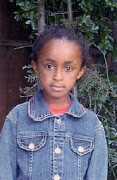 Compassion International
Compassion International is fighting malaria in a big way this month. You can donate a mosquito net to a family in Africa, this donation will also provide them with education about malaria, this deadly and preventable disease, and treatment for any member of the family already suffering from the disease, as well as a mosquito net for them to sleep under and be protected from deadly malaria-carrying mosquitoes.
Go here and participate in this amazing work.Malaria kills 1 million people each year. Most who die of this treatable, preventable disease are children. A gift to Compassions's Malaria Intervention Fund will help Compassion-assisted children and their families receive the resources they so desperately need to fight this deadly disease.
$50 dollars will help 5 families. That's the same that it costs us to take our family out to dinner, stay home and donate one night, use this as a tool to teach your children about those in need on the other side of this planet we all call home.
Tomorrow morning at 10am MT (noon ET) there will be a Live Malaria Intervention Webcast. You can register to watch it from the comfort of your own home at
compassion.webex.net and click "register" or call 1-800-336-7539 to register by phone. This webcast will include an segment with Rebbecca St James describing her involvement and heart for Compassion International's work around the world, question and answers with Senior Vice President of Sponsor and Development for Compassion's Mark Hanlon and others speaking about malaria and its impact on the world's poor. It would definitely be something worth checking out.



Dale and I sponsor 3 Compassion children in Ethiopia, Hewan, Markos, and Bilen, and I know that malaria has effected their lives in many ways. I million people die from it every year and I want to do everything in my power to make sure that these 3 beautiful children on God and their families aren't included in that 1 million. I pray al lthe time for them; their pictures stay in front of me at my desk at work so I can see them everyday I am here, they are in my wallet right next to my husband and nephew, I love these kids, and I've never met them. Their letters break my heart every time I receive one, it makes my day.
 Compassion International is fighting malaria in a big way this month. You can donate a mosquito net to a family in Africa, this donation will also provide them with education about malaria, this deadly and preventable disease, and treatment for any member of the family already suffering from the disease, as well as a mosquito net for them to sleep under and be protected from deadly malaria-carrying mosquitoes. Go here and participate in this amazing work.
Compassion International is fighting malaria in a big way this month. You can donate a mosquito net to a family in Africa, this donation will also provide them with education about malaria, this deadly and preventable disease, and treatment for any member of the family already suffering from the disease, as well as a mosquito net for them to sleep under and be protected from deadly malaria-carrying mosquitoes. Go here and participate in this amazing work.





1 comment:
Great strides have been made in many places in the fight against malaria, a disease that kills a million people, most of them children, every year. That's what World Malaria Day is all about. It draws attention to the many successful ways the war against malaria is being waged, mainly through the distribution of insecticide-treated bed nets and other relatively low-tech preventive measures. Unfortunately, children in the Democratic Republic of Congo remain highly vulnerable.
According to the World Health Organization, less than 1% of DRC children under five years of age sleep under protective nets. This results in most of them suffering six to ten malaria-related fever incidents per year. The disease also accounts for 45% of childhood mortality, which overall runs to 20%. In short, malaria kills nearly one in ten children in the Congo every year.
In Heart of Diamonds, my novel of the Congo, I explore how continuous armed conflict in the country is responsible for many of these deaths. Medical supplies can’t be distributed when roads, railroads, and airstrips have been destroyed. Treatment can’t be delivered by medical personnel who have been chased from their clinics and hospitals. People driven from their homes, plagued by malnutrition, inadequate shelter, and lack of sanitary facilities are weak and less capable of warding off disease. War creates a breeding ground for death by malaria just as surely as swamps full of stagnant water breed anopheles mosquitoes.
Although the intensity of conflict has decreased since the truce of 2003 and democratic elections of 2006, millions of displaced persons still struggle to survive and hot spots remain in the eastern and western provinces. Collapsed infrastructure has severely weakened the health system in the DRC, and the strengthening process is a slow one.
The DRC, unfortunately, has little to celebrate this World Malaria Day.
Post a Comment